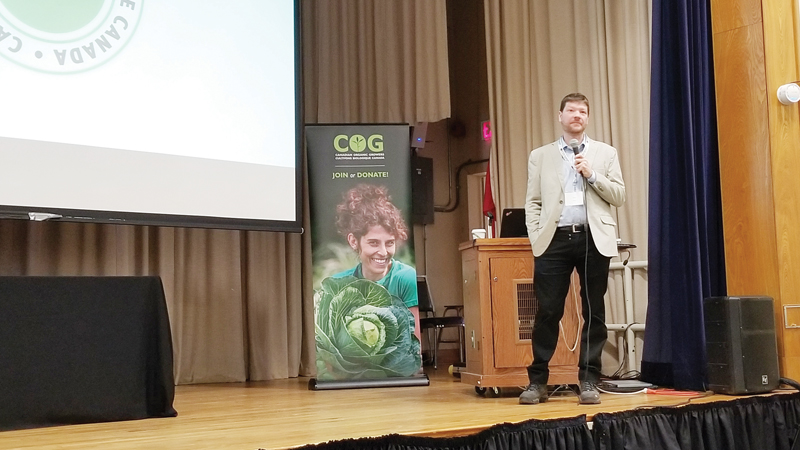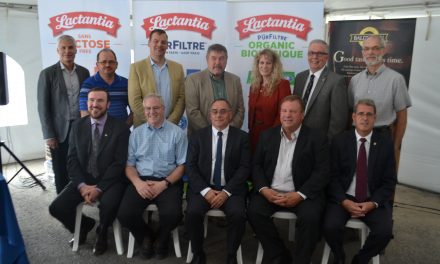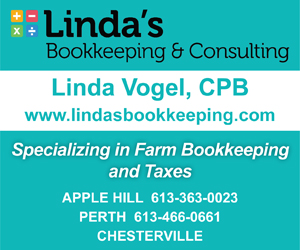Follow the money
Eric Payseur from the Canadian Organic Growers spoke to a crowd at the Rural Summit about the benefits of organic farming in the economic discussion. Sawyer Helmer photo
KEMPTVILLE – Eric Payseur was one of the morning speakers during the 2019 North Grenville Rural Summit on “How organic farming is a win-win-win for farmers, economic development and rural communities.” Payseur looked at the benefits of a fast-growing organic sector in Canada and the opportunities available to both producers and communities.
Payseur began by recognizing that Canada has the fifth largest market for organics in the world and is a top global exporter of organic crops. He added that despite the change to organics being somewhat driven by the millennial generation, organic products are consumed across all demographics and age groups. “There is a real opportunity for farmers and value added processors to catch the organic wave,” he said.
While there may be booming opportunities in the organic field, transition from a conventional system to an organic one takes at least five years before yields become competitive. During the transition however, producers would take a hit and have to manage issues with pesticides, residues and GMO contamination. Relief may be available through premiums offered for transitional products.
Once transition has completed however, Payseur said evidence suggests that organic fields can produce 40 per cent higher yields than conventional during drought years, as well as higher yields during flood years. He continued that for a “normal” year, yield profits would be on the same level, but added that recent history has shown a dramatic shift of weather patterns away from normal. For producers looking to lower their energy consumption or carbon emissions, organics average at 45 per cent less and 40 per cent less, respectively.
“But, I don’t have to say a word about the environment or the future. We can have a conversation about money and profitability of a farm. In extreme weather, organic holds up and performs better,” said Payseur.
The financial side however, requires a shift of thinking away from yield per acre to be evaluating revenue per acre. Payseur admitted that conventional expenses are lower but the premium offered for organic products can still offer three to six times greater profit.
Not only is there opportunity for producers, Payseur suggested, but organic processing facilities are in demand and could be a way to bring significant economic growth into rural Ontario. Payseur showed the audience graphics from U.S. based studies that saw a lower county-wide poverty level in organic producing and processing areas as well as a higher median household income. A second study suggested some of those findings are due to organic agriculture creating 21 per cent more jobs than conventional practices, however, audience members challenged Payseur to discuss future implications of the industry. One pointed out that the consumer does not want to be paying several dollars more for something that conventional products are on par with nutritionally, particularly dairy. They continued that with such strict regulations, what really makes organic better?
Some of it, Payseur said, is marketing products to consumers to highlight environmental benefits. Other options for organic growers is taking advantage of farmers markets and direct sales to cut out the middle man and eliminate retail price premiums.
For some producers, going organic might be a viable option to manage future weather fluctuations and increase profits, and for others the hassle of organic management isn’t the right option for their farm. Organic grower, Josh Biemond noted during the summit, organic can be a good options if producers already have best management practices in place.













